The Social Stigma of Comic Book Reading
Comic Books. What comes to mind when you hear that particular word? Childhood memories when you used to read Spider-Man and X-Men in the comfort of your own home on an 8AM Tuesday morning before middle school started? That is what comes to mind when I think about comic books. Comic books. Either that or Steve Rogers or something I am currently reading.
However, do I refrain from calling them comic books because people consider them to be childish? No. I still will proudly say that I read comics books and go comic book shopping on the regular for the new and improved redo of a comic that I used to know and love. I am sure some people on the outside judge me for that and say “She is still reading comic books?” And, that is perfectly fine; however, where did that stigma come from? Why have people seemed to connect comic books to immaturity or childish people? When did that exactly start and why did it start?

Throughout the years, I have noticed some of the comic book community itself being just as detrimental as the people calling us childish for reading comic books. The comic book community will down you for getting a character wrong, or for not liking a certain comic. They will find any reason to be pretentious about a comic book, and not teach you about the comic. They are not very welcoming, depending on who you bump into. So, the answer then becomes is the social stigma around comic books derived from the comic book community itself? That is where we land.
What Are Comic Books?
Comic books are different than graphic novels. One is shorter and one is longer, sometimes the content is different as well – in the recent years, graphic novels are also issues lumped together to make a whole series of a particular comic. So, Black Canary would have a huge graphic novel full of the issues that came out in this run of her series. Normally, consists of about 10 or less, sometimes more; however, it just depends on the series and how long it runs.
Issues are much cheaper on the scale of things; they range from one to four dollars and have about 10-20 pages. This depends on the issue and what issue it is, if it left on a cliffhanger or not, etc. They come out weekly or monthly, again depending on the series and the comic itself. Some people can argue that it’s cheaper to buy the graphic novel at the end of the series because you are paying for the same exact thing. If you want to buy separate issues that is okay too, it is normally what you prefer to do for yourself.
So, where does the stigma come into play? Well, some people say comic books are “childish” or “a hobby you never let go of.” Which, may be true to some extent; however, why is there even a stigma to begin with? Comics are not necessarily based on age, you read them as you read them and that is kind of it. There is no “I am 12 years old because I am reading Moon Girl and the Devil Dinosaur.” Moon Girl and the Devil Dinosaur can be for anyone to read – although, its main audience might be for children or teens. That is not to say someone in their twenties is not reading it and it is perfectly okay for them to read it because they are not childish for that.
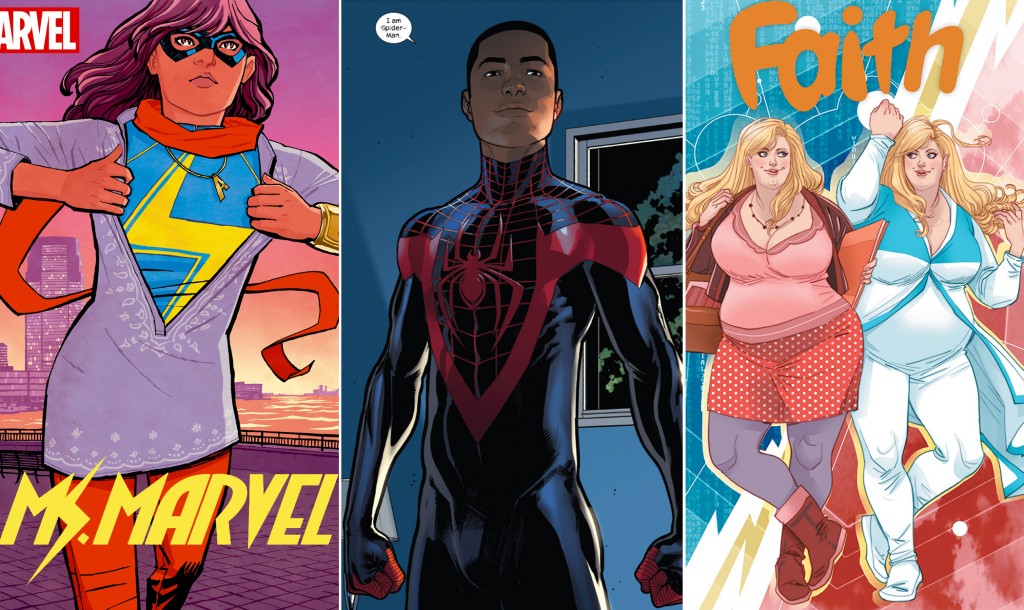
There may be comic books meant for teens and children, but they are a damn good read for adults as well. Comics are meant to be fun and you read them because the art and writing is so exciting. It is exciting in a sense that reading every issue that comes out weekly or monthly is fun. It becomes something that is entertaining and fun to go and buy these issues that you like. Certain comics may have childish tendencies, but that does not mean they are mean for children. The audience of comics is universal. Which, I do not think a lot of non-comic book reader understand. It is not childish to still read Archie still at the age of twenty-three. Comics are ageless, in a sense, because they don’t depict who is childish and who is not.
Yes, some comics are made for adults and some are made for children, but the only concern should be that children are not reading Sex Criminals. They have borderline pornographic comics (old school and new school versions), they have comics that depict sexual intercourse, they have naked human beings on comics nowadays; so, the stigma is kind of dated. Frank Miller is an example of that with his Sin City and 300 comic releases. The comic Preacher, which includes situations such as sex, violence, and profanity by Vertigo comics is an example as well. And, those are just a few of the ones on the market right now. If you really wanted to go out and find “adult” comics, they do have them.
The stigma that it is “childish” or “a hobby you never gave up” is lame, really. There’s comics for everyone and anyone; there is no one person that a comic is made for. There’s Joker comics that may have sensitive material, but, still, if someone wanted to read it – it is easily accessible. It is not made for adults, but it is an adult comic. There’s no really set age for comics, they do have Rated T or Rated M; but, at the end of the day, you read exactly what you want to read. If you are going to categorize comics between adult and non-adult, then you are saying borderline pornographic comics are for adults and everything else is childish. That is pretty much what is being stated, in other words.
What Are Graphic Novels?
Some may consider graphic novels to be more “adult” in a sense of Maus and other readings such as The Killer Joke as well. I know when I first got into comics Maus was popular, and graphic novels were not necessarily issues that were put together into a huge graphic novel. The difference between Maus and novels such as Killer Joke is they were not issues beforehand. At least I don’t think Killer Joke was, it might have had a few; but, I believe it was a release that followed a movie as well. You had novels such as The Watchmen, Sandman, Scott Pilgrim, The Walking Dead, and a ton of Batman issues are predominately graphic novels just like Joker and Harley Quinn as well. Anniversary issues include graphic novel releases and many graphic novel series have extras that are not in the issues that they release prior.
Graphic novels used to be original releases such as Dark Rain and Persepolis; however, that is not the case much anymore. They are probably still being made, yes, but as far as the popularity they are not as well-known as they used to be. There was a specific time where they were extremely popular. The fanbase of comics and graphic novels are equally the same, most of the time if you buy comics, you also buy the graphic novel at times as well. The graphic novels are extremely smoother and neater because you can keep reading it as a novel, which is why they are called as such.
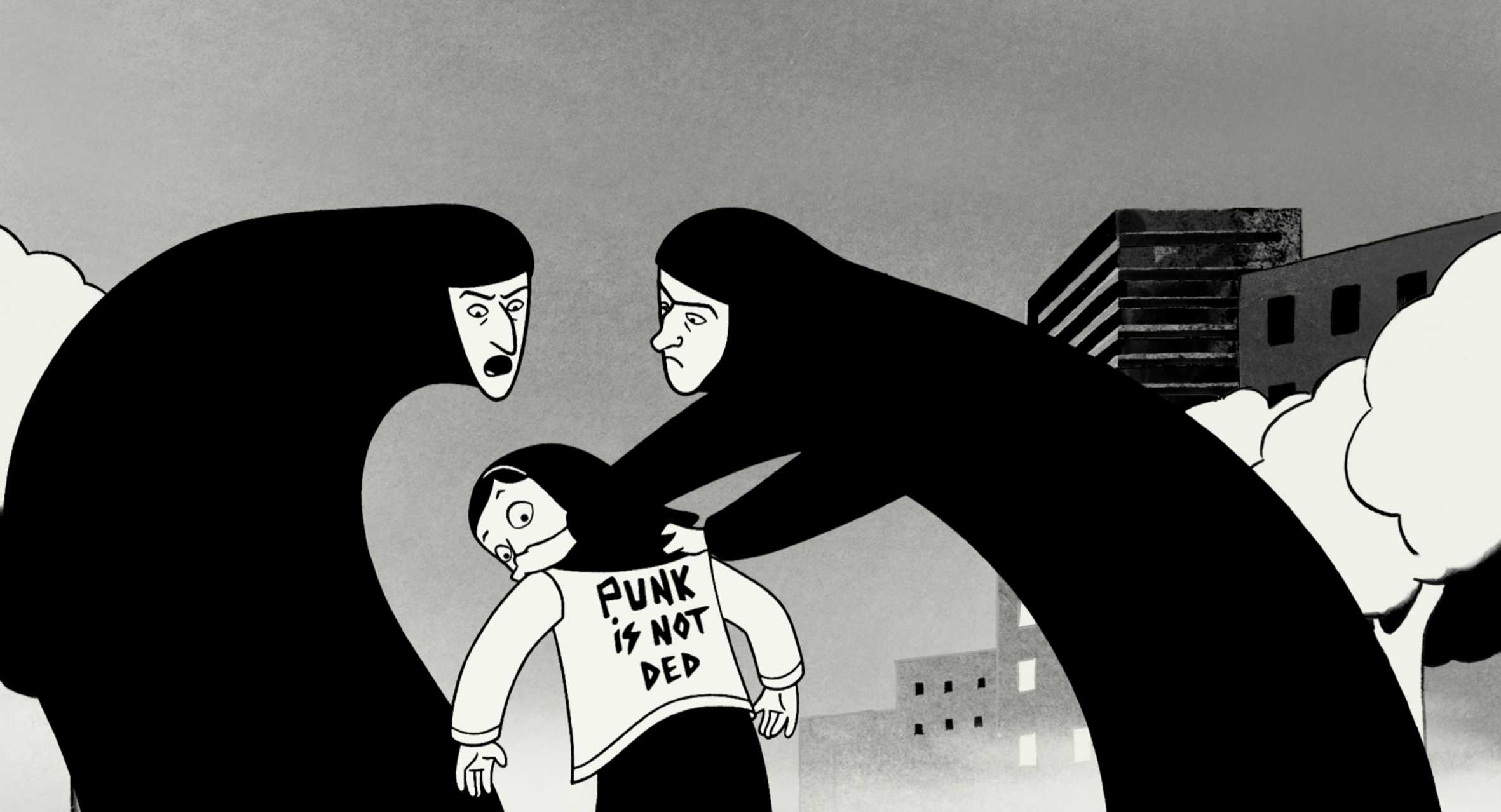
They are not meant to be for adults, or children, they are simply all the same. Moon Girl and the Devil Dinosaur has a graphic novel counterpart as well, and if it was strictly made for “adults” or a certain age of type of person then that specific comic would not be made into a novel form. If people say graphic novels are for a certain age of type of person. Graphic novels, possibly in the past, used to be for adults or an older type of person; but, have faltered in the recent years. They are simply another version of a comic book. The same comic that’s instilled in a graphic novel was probably once an issue beforehand. There are cases where that is not the case, but it has become popular somewhat for that in the recent years.
At the end of the day, comics and graphic novels are no different from one another. A ton of graphic novels are still called comics from some. You can google “Maus Comic” and it will come up with the same graphic novel, instead of searching “Maus graphic novel.” There is no specific way to talk about them, which is what makes them enjoyable.
The Stigma & Comic Community
The stigma from the comic book community is where things falter. You have one-half of the community that is extremely cool and nice; however, you also have another half that is detrimental. Which is slightly where I think the stigma comes from. A couple of people from the community can be very “If you don’t know this, then you are stupid.” If you read a comic or graphic novel, better expect to know every single detail. Now, not everyone is like this and probably not many are, but it’s still there. The stigma I think derives from this and the childish comes from the pretentious you have within the community. People are going to think you are childish because you act that way.
I, personally, have come in contact with this. Now, for someone who is just getting into a comic or wants to know more – you should be, ever so willing, to fill them in and show you know what your favorite comic instills. However, instead, it is the opposite sometimes. This is not to be like “woe, is me,” it is more so to show what the childish aspect could derive from. How people answer comic questions in a very “duh” kind of way is childish. If we surpass that and really focus on making people feel loved for the comics they read, and make them feel happy to be a part of a community – the stigma could easily go away to an extent. Of course, people will still say you are childish, or nostalgic; but, it won’t be because you are an asshole about comics. It will be because they are an asshole to think that, rather.
Comic-Con’s & Con’s In General
Comic-Con is closely related comics as well, with that idea that it is for children – or that you have to have some sort of immaturity to even go and dress up in cosplay. That is not the case. There are worldwide competitions for money and different prizes for people who dress up in the best cosplay. There are even times at this Con’s where they have prizes as well. People who dress up in cosplay spend an entire year and more on these costumes, they sew these costumes themselves and they make sure they are up to par. This takes work. You may say it’s immature and childish, but they spend a lot of time making these costumes for themselves.
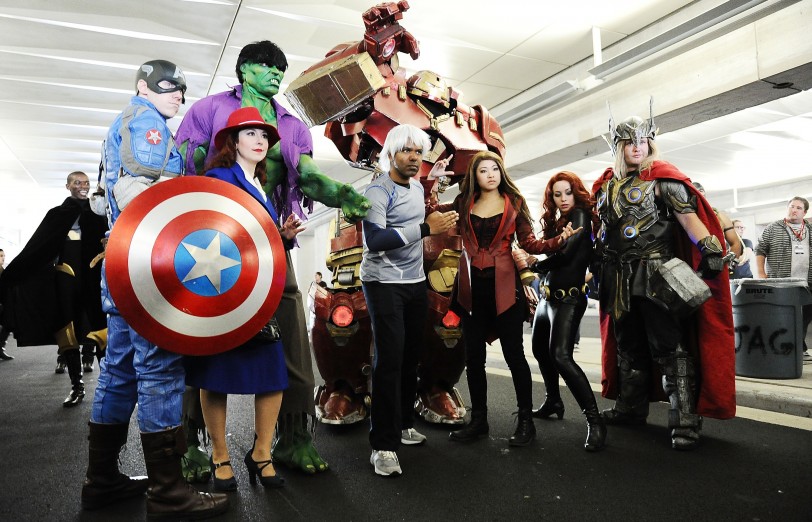
Comic-Con will never be childish. Adults take their time to go to these Con’s to see writers, artists, actors, that are the exact same age (or older) as them. The “childish” aspect is weird to say because the famous people who attend these Con’s are exactly around the same age as the adult people attending. That compares to the graphic novels and comic book association to childhood in a sense too. People are not meeting other nerds because they want to have a cool past time and pay for the money for it, they want to meet their childhood. They want to meet that nostalgia; people actually really love these Con’s and it is fun for them. Meeting people who love the same thing as you is empowering, it is not childish when it comes down to it. There should be no stigma pertaining to cosplay because cosplaying is a serious endeavor and people get paid for it.
What’s Next?
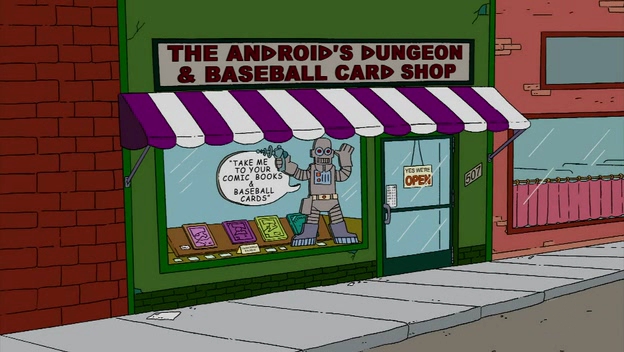
The stigma should go away, there is no need to be called childish anymore in 2017 for reading comics. The next steps would be to stop having that mindset and change the part of the community to be welcoming. At the end of the day, if you google “why are comic book nerds pretentious” it comes up with more than it should. It is something to think about when it comes to thinking about the stigma of comics books and graphic novels. Maybe people are not bringing that mindset to the table on their own, it could be because of who or what they encountered.
What do you think? Leave a comment.
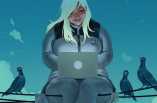
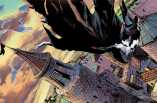

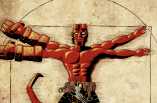
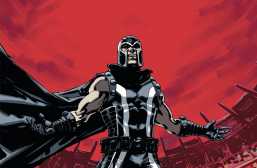
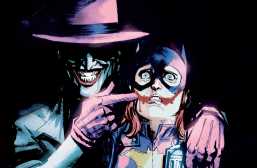

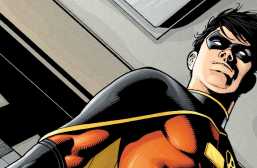

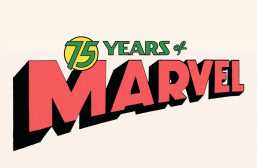
We ourselves have already embraced everything that comes with it. for millions of years its been the same. a stigma gets created when people who don’t understand fear or disapprove of it. Comics are neither right nor wrong. it is one of those media’s that offer something new and different than say watching a tv show.
Comic books never interested an intellectual. As a child I scoffed at retards who glommed into comic books instead of actual enlightening literature. Now here we are in a society full of worthless brainwashed imbeciles. Comic book trash movies shoved down everyone’s throat laden with obscene propaganda. You are trash and why humanity is failing.
Maybe I live in a different world. i read comics, none of my friends do, all my friends know I do, (this includes my wife) and I’ve never felt any “stigma” from them. And I’m older than most viners I bet. I have a step-son that collect lego’s (he’s in his 30’s) same thing. Some have even stated it makes birthday/Christmas easier. I’m foresee copies of both “The Amazing Spider-man, and “The Dark Knight Rises” as gifts within the year. 🙂
Thanks for the insight! 😉
Problem is, the majority of my friends won’t even entertain the idea of reading a comic book. I will wear them down eventually.
You will get them eventually, it always happens.
Most people don’t know that comics actually exists.
Also, a true statement haha
I order my comics online. I’m always a month behind but fortunately the internet catches me up on everything else. Anyway I haven’t exactly been forthcoming with my reading comics with my friends. Most of them watch the comic book films released every year but have never shown any interest in comics themselves so I simply don’t mention that specific hobby of mine. It’s not as if I don’t share plenty of other stuff in common with them.
It’s unfortunate that this medium of popular culture is generalised by stereotypes such as balding middle age men or the thin, gawky geeky outcast.
It really is! Hopefully, sooner rather than later everything will change. We all around balding middle-aged men, only some!
I think you’d be ashamed to read comics if it’s all you do. None of us are ashamed probably because we do other things.
That could be it haha honestly
In my years of living in Wyoming and Utah I have met one friend who shares a love of comic books. (They got me outside of Marvel and enjoying The Walking Dead.) It may be territorial (because there are so many close-minded hicks out here) but I don’t advertise that I read comics, let alone edit an effing wiki related to them. I’m sure there’s a message out there about being comfortable in one’s own skin, but I’m not going to be the one preaching it.
We are social outcasts.
BUT, only the best kind!
This is a seriously unedited mess. I’m also not sure what your point is supposed to be except “stop calling us childish for reading comics anybody can read comics okay!!” Comes off as very poorly conceived and argumented.
Also the word you’re looking for is “condescending” not detrimental” -> ie, how I’m acting right now in this comment.
The stigma properly comes from the pretension of the literary community looking down their snobby noses for it having pictures. Also I don’t think the stigma is necessarily about “childishness” (depending on WHAT comic you;re reading), but more about literary merit. Comics are generally viewed as being at the bottom of the cesspit as far as literary merit is concerned, and it can be difficult to convince people that graphic novels have literary merit too (but thanks to serious, influential works such as Neil Gaiman’s “Sandman”, graphic novels have gotten their foot in the literary door).
Also there is a verbal slight-of-hand that people use to denote their feelings on certain comics. Comics like batman, or spiderman, and other superhero stuff, people will just call graphic novels instead to try and have them be perceived more seriously.
Also the history of comics (even in the name: “comic”) comes from a place of pleasure (making people laugh), rather than serious subject matter. Comedy being taken as an artform as a very recent thing. There’s still a lot of left over condescension towards it though.
These points and a whole lot more should have been mentioned in your article. And an actual clear and coherent argument AGAINST the modern stigma against comics.
You totally should have wrote this instead, I will talk to my boss about this.
no thanks I’ll stick to rude comments it’s all I’m good at
hahaha you’re good i was just joking
The word you’re looking for, “condescending” corrector, is sleight not “slight” of hand. Sorry, couldn’t resist. Also, why not some manners when “correcting” someone, “I applaud what you’re attempting with this article but I have some constructive criticism…” Unless you were doing a bit, then forget it and I apologize.
I have to agree with Lusk22. Though scole certainly had (his? her?) heart in the right place, I wish that the piece had taken a few more editing runs before making it to print. The argument was pretty wobbly in places.
For one thing, being collected in a trade paperback does not make something a graphic novel. If it was serialized through floppy comics, and published as a book… Then its not a graphic novel. A graphic novel is a long-form comic, intended to be published in book-form from the get-go. Contract With God, Maus, Persepolis, and Fun Home all were originally published as books with intended literary merit. Those are all graphic novels. Watchmen, which was originally serialized in 12 issues, is often called a graphic novel due to ITS literary themes, but still is not. Watchmen’s writer, Alan Moore, even declared,
“I’ve no objection to the term ‘graphic novel,’ as long as what it is talking about is actually some sort of graphic work that could conceivably be described as a novel. My main objection to the term is that usually it means a collection of six issues of Spider-Man, or something that does not have the structure or any of the qualities of a novel, but is perhaps roughly the same size.”
I recognize that this might come off as pedantic, but if we are to have this discussion we need to separate the two often-contradictory definitions that often get thrown together, that a graphic novel is just a published series of comics, and that a graphic novel is a ‘mature’ comic.
Now, what is maturity? Scole points out that many comics and graphic novels have come to include sex and violence, and that is evidence of them not being for kids. While that is certainly true, there is a difference between these themes being used in comics for literary merit versus for shock value. While they are fun to read, many comics featuring, say, the Joker have him doing horrible things to people that… don’t really make you think. They are just to prove how evil he is, not to make you re-evaluate your positions. On the other hand, a comic series like Alias used Marvel’s universe to tell a story of how racism, depression and the trauma of sexual abuse can cause just as much alienation and strife in a world with superpowers (which led the comic transitioning well into the powerful Netflix series Jessica Jones, I should add.) Comics and graphic novels can tell really powerful stories with dark aspects of the human experience, but its important to not confuse portrayal of those dark aspects as maturity in and of itself.
Finally, I have to say its pretty clear the scole loves comics, and keeps up-to-date on the latest and greatest that contemporary Marvel has to offer (Moon Girl and Devil Dinosaur, Ms. Marvel, etc.) However, I cannot abide with (his? her?) insistence that graphics novels are unpopular and less prevalent than they’ve been previously. We are currently in a golden age for graphic novels, with North American publishers like Fantagraphics and Drawn-and-Quartered publishing dozens, if not hundreds, of stellar graphics novels each and every year. Just because the author (who mostly seems to read superhero comics, and I can’t blame ’em, they’re great fun) isn’t familiar with the current graphic novel scene, doesn’t mean that it doesn’t exist.
Not to be “pedantic” myself sir, because you raised some good points but I think if you do a bit of research you’ll discover that Maus was originally serialized as well. Also, it’s Drawn and Quarterly, a “clever” take on drawn and quartered. Cheers.
The literary element of comic books in the United States is true, but targeting the reason for the stigma would involve physiognomy too.
It use to be a lot worse. Some people even believed that it caused youth to become juvinile and violent. As years have gone by, it has gotten more respectful, especially due to the success of the Marvel Cinematic universe. There will always be a biased hate against it, but I don’t think we have much to worry. It is way more socially acceptable to read comics nowadays. Still, I am one of the only people in my school that reads comics (I may be the only one), but people are more open to it.
🙂
I don’t see how it causes us to be violent. No matter how deep you are a fan, we all know comics will always be fantasy heroes flying in the sky to save the world from an alien threat.
I never understood that either, I took a class on teaching comics in the classroom and I never really understood why we didn’t. It’s not violent whatsoever, it’s so fictional to the point where I don’t know who would actually believe it haha
The U.S. is not as open-minded as we parade ourselves to be. It’s conform or die.
Great post. I think people believe comics are childish because of the drawings in the story, we as fans appriciate them as art and a plus but people who never read any don’t. People also tend to believe the stories themselves are childish which they are not ex machina is an example it deals with political themes and gruesome scenes of corpes, etc What I do mean is that people don’t know that comics as like any kind of media you have stories of all kinds comedie comics and creepy comics.
I am not ashamed of my hobby infact I have pride in it and I was (I finished schools this year) in my class the dude who knew about comics and I dragged my nephew also in the world of comics.
I love this comment, and I think that does have something to do with it entirely. It’s another world with comics and I appreciate and always will coming from the comic world.
I’m open about reading comic books and when I changed schools that’s what I lead with, and there was a stigma for a year or two but now I’ve gained more friends. And the ones who don’t read comics are still cool with it.
Exactly! That’s what I like to hear!
A lot of pre conceived and wrong ideas about geeks/nerds/whatever.
Totally, even though I am a comic reader myself… lol. Was mostly just saying from past experience that may have been the case with the stigma. But, who knows, now everyone could be totally rad!
This is an interesting piece which provides fair insight into the effects of passion and how it can ruin a good thing. I wonder if the reason comic book lovers sometimes come off as pretentious is because of their passion. Maybe they don’t mean to come off as pushy or knowing it all, they simply love what they love and are forceful in their defense of it. While this may be seen as an issue by many, it is not a wholly destructive thing. The thing we should all consider is the love we share for the medium. Although someone may be more vocal (be it positive or negative), this doesn’t necessarily mean they are acting out. Even if it does, as an individual, we need to be comfortable enough in our own skin to not let the actions of others deter of from what we love, specifically if we all share a love for the same thing: comic books. Sure, we should continue to attempt to educate others on behavior in public, but the truth of the matter is the world needs balance. We need these “haters” in order to question the love we have for our passions. If we continue to blindly move forward with something we like without ever questioning whether we still like it (or have others test our resolve for the thing we love), how are we to know whether the thing is still important to us. I often make fun of things I like (parody them) just to test whether or not I still like whatever it is. This may sound crazy, but as we grow, we change. Introspection is a useful tool for growing. It may be the only thing that allows us to do so.
I actually love this comment, best one of the post so far!
Comics are just another form of media like books, video games and movies and sadly there are always some stigma to enjoying some form of media.
You are totally right, I agree with that!
I agree with the writer on every aspect that you’re never too old to do something that you love. I know and see so many adults dress up and go to Comic Con. I see their bright smiles and glowing faces when they pick up a comic book. It gives me goosebumps when I see people filled with joy when they put themselves out there. This article inspired me that no one should care or be embarrassed by reading comics or do anything that they love.
Thank you, that what exactly what I wanted to get across. As a fellow comic reader myself, it’s a wonderful thing. The stigma is always going to be there, but being excited and happy about something is there too. So it’s really awesome to love something as much as comic con goers and comic readers do. We are our own little group of friends and it can be really beautiful!
Anytime i refer to comic-book reading or anything comic-book related, i classify it as my “secret life”, because that’s exactly what it is. LOL. The thing is, comic-book reading, is like, a myth around here, there isn’t exactly your local CBS to walk into or anything like that, there’re just issues of Essential X-Men. S’why i’m a digital guy.
Movies have made comic nerdiness cool where I’m from. Mostly people think it is intresting that I read comics and ask a bunch of questions, but they may just be acting polite or trying to create small talk about something I OBVIOUSLY enjoy lol. I get called a man-child alot, but I really don’t mind because honestly I am childish, but I’m responsible enough tto pay my bills, go to work/school, and I clean and cook. I may not pretend to be as mature as some people, but why should I have to?
Comics are novels with pictures, and that is what people need to learn. They go beyond the realm of Superhero stories. You can find every kind of story in comic form.
Perception wise, we’ve come a long way, us comic book lovers. I agree though — there’s something inherently stigmatic or immature about comic books for a lot of people.
But there’s hope. We’re moving up the road and around that bend. Prestigious writers from outside the medium — writers like Ta-Nehisi Coates — are embracing comics with a fervor bound to get non-comic booker’s attention.
Spot on!
Most people don’t know there’s actual things such as comic books (like Marvel & DC) so I never dealt wit this stigma.
I’ve actually become comfortable as thinking of myself as a nerd. I’m quite open about it, but in High School it was another matter. Luckily my friends have grown to accept it….
It is a shame. The misconception that people make, which needs to change is that comics themselves are a genre. That is a totally asinine assumption. Comics are a medium through which stories can be told. There used to be a time when people wouldn’t look at you as if you were mentally retarded because you were reading a comic. I don’t know how bad it is in the UK, but here in America it is like that because hardly anyone wants to read books in the first place. But if you give them a good horror story like Alan Moore’s Swamp Thing, I’m sure that’s enough to drag anyone into comics.
Sadly, since we in the US were the first to really popularize the “medium”, we are also the ones with the most schizophrenic attitude about them. Japan and most of western Europe certainly don’t share our “hangups”. Most people in the US bought into propaganda (esp. baby boomers, and older) that comic books were despoilers of children and never attempted to adjust that attitude or revisit the medium. In fact, when I attempt to introduce family/friends to comics I’m surprised that, not only are they unfamiliar with the modern output but in many cases aren’t even sure HOW to read them. I’m all too willing to help them, but I think you’re also right about the amount of effort and/or time most people today are willing to put into reading much of anything. I have a feeling anyone who reads anything for recreation may become a “geek” minority in the future, if they’re not already.
I have found graphic novels to be a satisfying reading experience. I wonder how they are viewed.
Great insight here. I took a Graphic Novels course, which taught me a lot about comics, and it really is sad that comics are often not considered a “legitimate” medium. They’re either seen as too childish or too mature (see: Seduction of the Innocent).
Watchmen, or the Killing Joke, or any of Frank Miller’s work. Some of the best pieces of literature right there.
well i think that ‘stigma’ depends of the culture and the people of the country where you live, the tv and movies and the popular culture in general, tell us the comic reader usually are pariahs, but that stigma usually exist in countries where the comic readers are common, but for example where i live the comics readers are a really really rare species,i’m the only one i know in my university and ok i’m not mr. popularity but i’m not a social pariah and some of my ‘nerd’ friends are manga/anime fans, like at least here the 99,999999% of the others ‘nerds’ and ‘pariahs’ , we have a yearly comic con and it’s full of narutos and god knows what more, so usually people find us interesting and uncommon, and in this times when you see a lot of movies, video games, etc about comics people needs comic readers because usually we know things what for them are hard to know… or understand, well this is my point of view
it’s funny because I live in Europe (Mainlaind) and because there are so little but so little comic book shops (like 5 or 6 in the whole country), reading them is very rare, but it makes it kinda OK.
Nobody really gives a crap because almost no one has any knowledge about it. When you have some knowledge about something, usually stereotypes and misconceived ideas are created to fill in the gaps. When you are clueless though, you just don’t know. So yeah, Im kinda lucky, nobody gives me a hard time because nobody really cares or understands what those are, except for the older people who collected during the heyday, but those obviously are not gonna discriminate.
I hate that I understand the frustration that comes with Googling the phrase “why are comic book nerds so pretentious.” I started reading comics with Avenging Spider-Man, which are stories that involve Spider-Man and one or two other superheroes teaming up and usually defeating the bad guy in the same issue. It was a simple premise that was meant for younger audiences that nonetheless drew me in because they were straightforward, self-contained stories.
What I believe leads to the sense of pretentiousness is when readers want to see a change occur that isn’t occurring. Yes, it makes sense business-wise that Marvel and DC change up their comic book storylines to match up with whatever is going on in the movies since the movies are likely to make people pick up the latest issue. It becomes frustrating when characters go through sudden changes in terms of design or personality to reflect these business decisions, which leads to writers and/or artists switching what they work on when all you want is a consistent story. Comic book readers also get frustrated with events in comic books that are marketed as changing the entire Marvel or DC universe “as you know it,” especially when they happen one after another. The issues about the event sell well because of the characters that get involved, so it tells Marvel and DC to keep doing these types of events, becoming a constant cycle.
Comic books are merely an outlet for some and an escape for others and an indulgence for yet another group. Why pigeon hole anyone? Can a doctor not love superman? A lawyer not be into batman? Come on
Thanks for the article! I agree that there is a stigma that comes with reading comics; I myself have been in the position where someone would come up to me, give me a strange look, and finally ask, “Are you reading a comic book? Aren’t you too old for that?” The answer I want to give right off hand is ‘heck no, leave me alone to read in peace’, however I then realize that the reason that they ask is mostly because they haven’t grown up around the material. People who don’t read comics generally don’t find an appeal in the superhero shows, movies, or TV shows like Arrow or The Flash. It is only when they associate with a character personally, do they slowly evolve into a fan; for example I love love love Ororo/ Storm from the X-Men, if I could have any power in the world it would be over weather. And because I associate myself with her character I come to love the comics and movies, as well as the character development in the stories more.
This is one of the reasons, I believe, we are so critical of movies and TV shows; to see our favorite characters come to life through actors is exciting but also terrifying. In the wide spread world of Hollywood, as we know, they take great liberties to change the story to create a more interesting movie. At times these changes can be either for the better or for the worst, as many of them are unfortunately. Comics and graphic novels help shape the characters, to vividly give their audience a look into the universe, so close that we wish it possible to visit. The next best thing, cosplay!
I remember my father getting really angry if he saw me reading a comic. His contention was that the language was bad, not just profane but bad usage of the language. Also, I suspect, he found them childish and not worthy of one’s time. Well, I still read them but became choosy as I grew older. Now I look upon comics as another form of literature and also appreciate the art.
I do enjoy the occasional comic book, however I am suppressed how much goes over my head, as in order to get the current issue you have to read the entire run other wise you may not get why there is one panel dedicated to a super-villan breaking in to an unknown location and stealing something. meanwhile a graphic novel is sat right in front of you with a whole story, unless its been chopped up into different books.
I love comic books when I was a little kid and I still like them today but my concern is that it’s not long enough other then that it’s really awesome
The simpsons comic is awsome but Bart needs to be more in the comic book I don’t think he’s in there long enough other then that the Simpson comic is awsome
This felt like the introduction to a much longer article. I think a comparison with the view of people who play videos games would have been appropriate here, in many respects. Especially the hierarchies within the community.
there’s another writer on the site who is doing an article like this one, so i did not want to take what they are saying so i had to be minimal since there’s a slight part 2 coming!
Um, just so you know it’s The Killing Joke, not the Killer Joke.
Do you have any thoughts about how to change the community? What factors do you think cause people to perceive the comic lover community as pretentious?
How are you defining the line between graphic novels and comics? What about something like Watchmen, that always gets called a graphic novel (I’ve certainly never heard someone refer to Watchmen as a trade), but was technically published as 12 individual issues initially? Is the difference that significant? Or is the difference between an ongoing series and a limited series or graphic novel more relevant? What about other forms of sequential art?
Why do you think people perceive comics as a childish pastime, and what do you think could change that? To be honest, it’s kind of funny that people think of comics as childish, but it has always been a struggle finding quality comics that I feel comfortable giving to my eleven-year-old younger brother.
Also, isn’t it kind of weird that we’re talking about being perceived as both pretentious and childish at the same time? Not saying it’s not true, just think it’s funny.
That is my bad, I do apologize for the “The.” But, I love your comment, rather than the normal “bashing” or “nice” ones you asked questions and I enjoy this. I hope everyone answers this because they are interesting questions being asked.
I don’t know how to change the community, from the past and seeing online I have noticed that some lovers of comics can be rude towards people who don’t know certain things about comics. Which not everyone reads them, so they wouldn’t know. I have seen it minimal in the past year, but it has been apparent. As everything, it’s a hobby and a craft for some, so it’s only normal to be defensive about a craft that everyone says is childish. I think if we get that mindset out of our mind that it is childish we won’t assume everyone is being mean or rude when asking questions – if that makes sense haha. Just from the comments on this article alone, it’s a bit 50/50.
WATCHMEN would have to be that line where it’s both. But, I only defined graphic novels and comic books by what they are now and touched on a little back in the day. What they appear to be now are issues in graphic novel form with some extra content. Back in the day, though, they were not that. It’s a weird line, you know, I was only going from what I know or what I have seen (looked up, etc). I think everyone defines them in a different way, which is totally fine – everyone has their own version of what a comic book and graphic novel is.
Even myself, at times, get crap for reading comics. It’s a “nerdy, childish” thing I guess to some people. It’s becoming more normalized, that is true, and everyone is reading a little form of a comic these days. However, I guess it’ll always have that “oh, you read comics” reply towards some people. To me, it’s not childish because I have read them since I was a child. I don’t think it’s anything really, reading comics is reading comics haha. There isn’t a mature or childish aspect about it. It’s awesome, or it’s not (to whomever).
The article was meant to be just what someone who doesn’t read comics would say or think (there’s another piece coming out about this and I wanted to focus only on certain aspects of it). I believe some people can be pretentious depending on what it is, I know a ton of people on the outside say that about the comics community. Which is why I added it in, I have seen it but I don’t accuse anyone of it. I think it’s not a great way to be, I know knowing a lot about something can be perceived as pretentious – but, I think the heart is in the right place. A lot of people get excited about something they know well. There’s that line I guess of knowing something and being excited about it and then knowing something and thinking you are better because of it. It’s a fun community, all and all I love it and I even love the comments I get good and bad. They are all funny or cool to read.
I think we all can say comics are awesome and not childish haha.
I can say that comic book reading has been a great influence on my own ability to visualize a piece of the action happening. Each story that I have read offers their unique way of presenting characters that face peril, whether their actions are heroic or not. There are some comics that push boundaries in terms of violence and sex. Just remember: not every comic book is intended for all audiences. An example that I can bring up is the Batman: The Killing Joke. That graphic novel displayed enough violence to make me feel shocked but I knew it was done to help tell the story being told. Aside from that, there is no other reason for people to want to read comics. Comic books bring out the best in all who feel left down and want to be a part of something bigger and better.
In my undergraduate degree I’ve been trying to incorporate analysis of graphic novels into my essays with a great deal of success. I was able to include Grant Morrison’s Arkham Asylum in my essay on Thomas Pynchon’s The Crying Of Lot 49 and even include several panels visually in my conclusion. I’d love to see a graphic novel studies crop up in either the English department or the Art History department just as film studies has arisen in the last few decades.
Great article. I think the stigma associated with comic books definitely lessens among younger generations, though there’s definitely still a stigma around adults who still read comics.
There are certain things that only adults should do. Likewise with children. However, there is a broad range of activities/ entertainment that people of all ages can enjoy. Comic books can be enjoyed by people of all ages. It may have a target audience and be written specifically towards them, but that is no reason somebody older or younger cannot read and enjoy it.
I really enjoyed this article. I have very similar sentiments to being called childish for liking comic books. Some have even told me that I am too obsessed. But your analysis on the community is spot on. I find that there are people who constantly put down people for not reading a character and to me adds to the childish stigma.
Comic book are inspiration. When I find myself in a bind, I read my Batman issues, because if there is a way, Batman will find it. They give us a visual and a story a film cannot give us. We need comic book help keep the integrity of the world a live.
I wish there were more concrete examples of the stigma associated with reading comics, or graphic novels. I have never encountered any form of shame or disapproval for reading either. In college, there were even classes that incorporated graphic novels into the curriculum. Yes, there may be some awkward glances if you are reading Sex Criminals while you wait to pick you kid up from day-care, but I find it hard to agree with the scale of stigma that you propose is associated with reading either comics or graphic novels.
I truly believe that there is a comic out there for everyone. The three comics that I use as “gateway” comics for non-comic readers are “I Hate Fairyland”, “Pride of Baghdad”, and “Fables”.
I’m curious. It has been over a hear since you wrote this article. Assuming you are still on this platform to read this: do you still think there is a stigma attached to reading comic books? I think that comics (at least superhero comics) have become so integrated into modern entertainment (i.e. the popularity of the Marvel Cinematic Universe) that there’s next to no stigma attached to reading them.
They don’t get the recognition they deserve as literature. People still put novels on a pedestal and have comics maybe on the floor leaning against the base of that pedestal. But there is movement. I think things are getting better.
Comics are the window in parallel world
Your section about the stigma behind calling yourself a “comic book reader” reminded me of a course I took at my college titled: The Graphic Novel. I talked to my professor about how he started the course and he said that after multiple failed attempts at starting a class titled: The Comic Book, he changed the name because of the stigma you wrote about. ” Graphic Novel” somehow sounds more ‘mature’ even though they mean essentially the same thing.
Part of the reason why I like comics (and other things traditionally associated with kids/young adults like video games and cartoons) is because I grew up with them. I think there has been such a huge demographic shift in people who now like comics and video games due to the increased amount of people who grew up with them as kids/teens and continue to enjoy these genres as adults.
I was reading some of the other comments here– it is interesting how people are simultaneously perceived as childish and also snobby (about their expertise). It creates a sort of weird contradiction. I agree with the author that there also seems to be a split in any kind of following. Generally speaking, the chill people and the people always trying to one-up you.
It’s easy to say that you should just like what you like, but, even if you have a lot of self-confidence, it is hard to publicly display your interests if so many people think of it as stupid or immature. Bottom line for me is I’ve been through too much crap in life to not enjoy what I enjoy. Of course, I don’t have time to sit on WoW or read Teen Titans for hours upon end anymore haha, but I am still an avid comic book reader and will continue to be. Hopefully, I’ll pass on the love to my kids!
I always read graphic novels. Nothing wrong with grown adults and young adults reading comics and graphic novels. I say at least we’re reading.
I know the stigma is there, though I haven’t felt it as much due to the fact that the MCU is making it cool to like comics and superheroes. But I haven gotten some awkward stares when people find out that its one of my hobbies.
I agree that the stigma needs to go away. Comics are very relevant to today just look at the main blockbuster movies that are highly popular.
Those who still maintain this stigma maybe do not understand comics or graphic novels. Maybe they should give them a chance.
I was thinking in terms of me usually in an antique mall buying a comic from the 1950s or 1960s, forget all the more modern ones. Superman and Batman from the 1960s, I still enjoy them.
I work in a Nerd centric department and whether it is fans trying to explain why I am wrong or people in the office giving a ten minute history lesson when I said I was enjoying a certain book I feel very ostracized from the fandoms. When talking to people outside of the “circle”, I get met with comments of “why don’t you read something real”, or “I thought Comics were for little boys”. People don’t seem to realize the powerful stories that can be told thanks to this literary and visual medium.
It’s quite interesting, people I apparently am not the “type” to read comics, people seem to be surprised when they find out I’m into that stuff. Hopefully these “types” will be abolished in the years to come.
I thoroughly enjoyed this article you have a great flair for writing, scole. You made a lot of salient points about pretention in the comic book community. I used to read comics in the past, but I don’t read them so much anymore, mostly due to budgetary reasons. I did enjoy reading The Sandman series back when I was in my 20’s. Have a nice day.
Hiya.
Came to read this, since I thought the article could offer some points as to why this prejudice exists or is at least perceived as such.
I didn’t found any that I find convincing, I’m sorry to say.
My pops laughed at me for reading anything visual in my teens and past them. Didn’t stop me though, I am still doing it. Now he’s dead more than 10 years (he was a happy child, yet a sad man), but I will always cherrish this unexplained memory. Kinda funny, kinda sad. (how’s that for an origin-story?)
As others here pointed out, and as it became my preference as far as explanations reach: “The Funnies” were new and shiny, and heavily marketed at youths (the term teen-ager not coined yet), so they were originally “kids stuff”. Like bubble gum. Or the hula hoop. Alas, that changed. Former kids grew up and kept their passion about them, and began to create them themselves. A torch passed. The medium changed. Others left them behind as they entered adulthood, putting the bumper sticker “You sooner find me sad and dead then reading comics” on their own rear end.
It’s the human-made law at all new or younger things. Another example? Video games. It’s almost as bad as drug addiction, I hear some say.
Sorry, moms. Sorry, dads.
I do love a good graphic novel, Nimona is the last one I got around to reading. I’ve thought of picking up Maus but it’s backlogged for now.